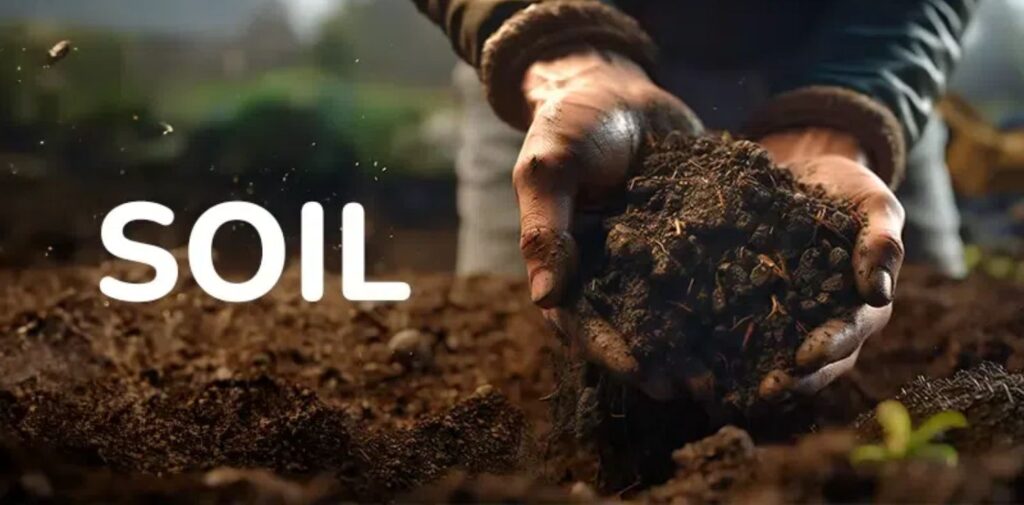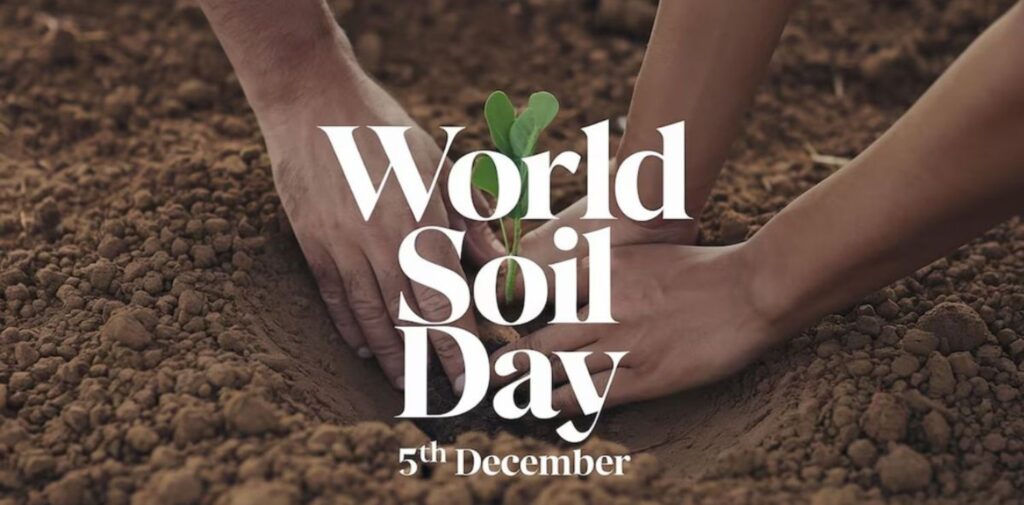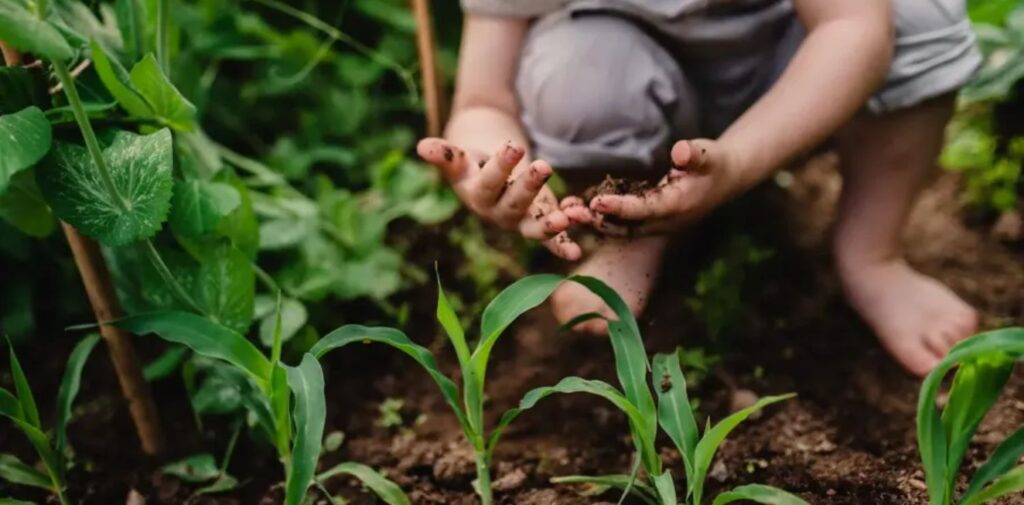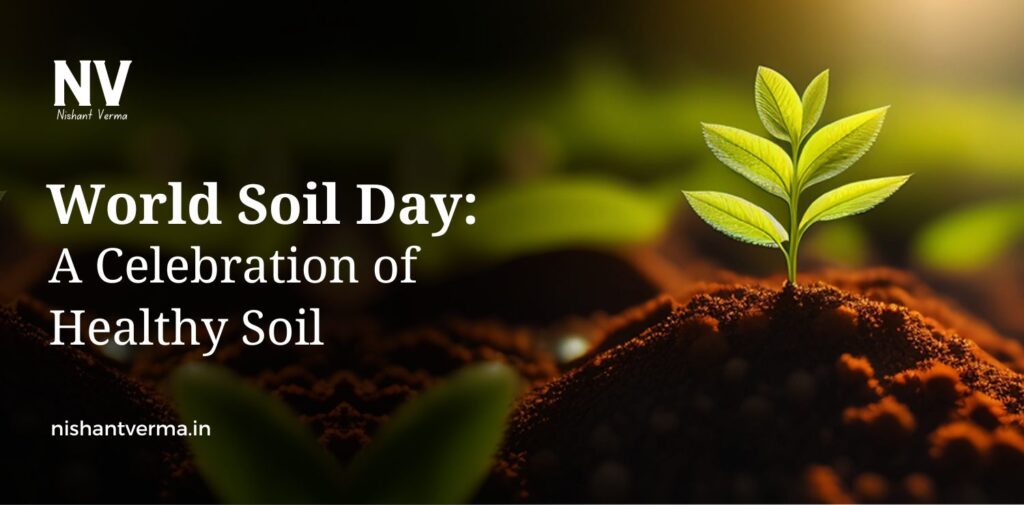Every year, on December 5th, the world celebrates World Soil Day. This day is dedicated to raising awareness about the importance of soil in our daily lives. Soil is one of the most vital resources on Earth. It plays a crucial role in growing the food we eat, providing homes for animals and plants, and helping the environment stay healthy. Without healthy soil, the world would face many serious problems. Unfortunately, soil is often overlooked and taken for granted. World Soil Day is an opportunity to remind everyone how important it is to protect and care for soil.
What is Soil?
Soil is the upper layer of the Earth’s surface that is made up of tiny particles of rock, minerals, air, water, and organic matter like dead plants and animals. It is the material in which plants grow and from which they get the nutrients they need. Soil also provides homes for various organisms, including insects, worms, fungi, and bacteria. These organisms help break down organic matter, making the soil richer and healthier.
Soil is essential for life on Earth. It supports the growth of plants, which produce oxygen and food for all living things. Without healthy soil, plants would not grow, and the food chain would break down. Soil also helps to store water, filter out pollutants, and regulate the climate by absorbing carbon dioxide from the atmosphere.

Why is World Soil Day Important?
World Soil Day was established by the Food and Agriculture Organization (FAO) of the United Nations to recognize the importance of soil in sustainable agriculture and food security. The main goal of World Soil Day is to raise awareness about the importance of soil health and to promote actions to protect soil from degradation.
Soil faces many threats today, including pollution, overuse, and climate change. Activities like deforestation, overgrazing by livestock, and urbanization cause soil erosion, which leads to the loss of fertile soil. Additionally, the use of harmful chemicals like pesticides and fertilizers can make soil toxic and less productive. This has a direct impact on food production, as farmers depend on healthy soil to grow crops. If soil continues to degrade, food security will be at risk, leading to hunger and poverty for millions of people around the world.
Through World Soil Day, governments, organizations, farmers, scientists, and individuals can come together to discuss ways to protect soil and ensure that it remains healthy for future generations. The day is a reminder that everyone has a role to play in soil conservation and that small actions can make a big difference in protecting this precious resource.

The Theme of World Soil Day
Each year, World Soil Day is organized around a specific theme. The theme focuses on different aspects of soil conservation and how to improve soil health globally. For example, past themes have focused on soils and food security, soils and climate change, and the importance of soil for sustainable development. The theme helps direct the attention of policymakers, farmers, and other stakeholders to particular issues that need to be addressed for better soil management.
For example, the theme for World Soil Day 2023 was “Soils: Where Food Begins.” This theme highlighted how essential soil is for food production and the need to protect it to ensure that we have enough food to feed the growing global population.
How Does Soil Get Degraded?
Soil degradation is the process by which soil loses its quality and becomes less productive. This can happen due to natural processes, but it is often caused by human activities. Some of the main causes of soil degradation include:
- Soil Erosion: This happens when soil is washed away by wind or water. It is often caused by deforestation, overgrazing, or poor farming practices. Soil erosion can make the land less fertile and unable to support crops.
- Overuse of Fertilizers and Pesticides: Many farmers use fertilizers and pesticides to help crops grow better and prevent pests. However, excessive use of these chemicals can lead to soil pollution and harm beneficial organisms in the soil.
- Deforestation: Cutting down trees for wood or to clear land for farming can lead to the loss of soil. Trees help protect the soil by holding it together with their roots. Without trees, soil becomes loose and is more likely to be washed away.
- Urbanization: As cities and towns grow, more land is developed for buildings, roads, and infrastructure. This leads to the loss of fertile land and can also increase pollution and cause the destruction of natural habitats.
- Climate Change: Climate change is having a significant impact on soil. Extreme weather events like droughts, floods, and storms can damage soil and make it less productive. For example, droughts can cause the soil to dry out and become hard, making it difficult for plants to grow.
The Importance of Soil Conservation
Soil conservation is the practice of managing soil in a way that prevents it from becoming degraded and maintains its fertility. There are many ways to conserve soil, including:
- Crop Rotation: This is the practice of planting different types of crops in a field each year. Crop rotation helps to improve soil fertility and reduces the risk of pests and diseases.
- Cover Crops: These are plants that are grown to cover the soil when it is not being used for crops. Cover crops help protect the soil from erosion, improve its structure, and add nutrients.
- Reduced Tillage: Tillage is the process of turning over the soil to prepare it for planting. However, excessive tillage can damage soil structure and lead to erosion. Reduced tillage involves disturbing the soil less, which helps to preserve its structure and health.
- Agroforestry: This practice involves growing trees alongside crops. Trees help protect the soil by preventing erosion, improving water retention, and providing nutrients through their roots.
- Terracing: On hilly or mountainous land, farmers can build terraces to slow down water runoff and reduce soil erosion. Terracing helps to prevent the loss of valuable topsoil.
- Recycling Organic Matter: Adding organic matter like compost to soil can help improve its structure and fertility. Organic matter provides nutrients for plants and increases the soil’s ability to hold water.

The Role of Governments, Organizations, and Individuals
Governments and organizations play a key role in promoting soil conservation. They can create policies that encourage sustainable farming practices, protect natural habitats, and provide financial support to farmers who adopt soil-friendly practices. International organizations like the FAO and the United Nations help raise awareness about the importance of soil and advocate for better soil management practices worldwide.
Individuals can also make a difference in protecting soil. Simple actions, such as reducing waste, avoiding the use of harmful chemicals, and planting trees, can help improve soil health. Educating others about the importance of soil and supporting sustainable farming practices are also important ways to help.
Conclusion
World Soil Day is an important reminder of the critical role that soil plays in sustaining life on Earth. Soil is essential for food production, climate regulation, and biodiversity. Unfortunately, it is often taken for granted, and human activities are threatening its health. On World Soil Day, we are encouraged to think about how we can help protect and preserve soil for future generations. By taking small actions in our daily lives and supporting policies that promote soil conservation, we can all contribute to the fight against soil degradation and work towards a more sustainable future. Remember, healthy soil means a healthy planet!




